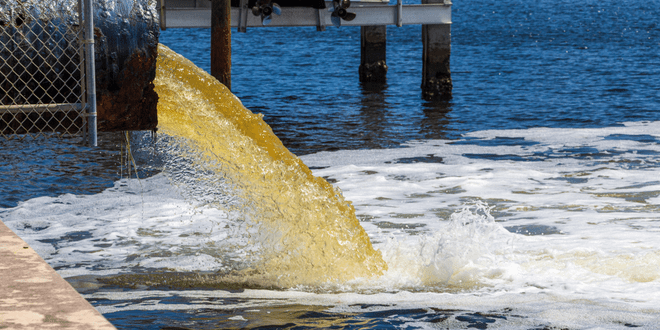Six months after mankind became aware of the COVID-19 pandemic, many questions are being raised and many question marks remain without answers.
A global team led by researchers from the Zuckerberg Institute for Water Research at Ben-Gurion University (BGU) of the Negev suggest that wastewater containing coronaviruses may be a serious threat. The international collaboration of 35 researchers, who just published their work in the journal Nature Sustainability, evaluates recent studies on coronaviruses in wastewater and previous airborne infectious diseases, including severe acute respiratory syndrome (SARS) and Middle East Respiratory Syndrome (MERS).
The article appears under the title: “Rethinking wastewater risks and monitoring in light of the COVID-19 pandemic.”
Their aim is to evaluate potential threats, avenues of research and possible solutions and to accumulate garner beneficial perspectives for the future. “There is ample reason to be concerned about how long coronaviruses survive in wastewater and how it impacts natural water sources,” said lead author Dr. Edo Bar-Zeev of the Zuckerberg Institute in Beersheba. Can wastewater contain enough coronaviruses to infect people?
The simple truth is that we do not know enough and that needs to be rectified as soon as possible, said Bar-Zeev, who, with his postdoc student Anne Bogler and other renowned researchers suggested that sewage leaking into natural watercourses might lead to infection via airborne spray.
Similarly, treated wastewater used to fill recreational water facilities like lakes and rivers could also become sources of contagion. Lastly, fruits and vegetables irrigated with wastewater that were not properly disinfected could also be an indirect infection route. The research team recommends immediate, new research to determine the level of potential infection, if any, and how long coronaviruses last in various bodies of water and spray.
“The COVID-19 pandemic has severely impacted public health and the worldwide economy. Converging evidence from the current pandemic, previous outbreaks and controlled experiments indicates that SARS-CoVs are present in wastewater for several days, leading to potential health risks via waterborne and aerosolized wastewater pathways.”
It was suggested that the SARS-CoV-1 infection occurred through respiration of aerosols created by toilet flushing or faulty plumbing systems. “Similar to SARS-CoV-1, RNA of the newly emerged SARS-CoV-2 has been detected in stool samples as well as wastewater. Therefore, it has been postulated that wastewater, a sustainable source of fresh water could be an indirect infection pathway during SARS-CoVs outbreaks.”
Conventional wastewater treatment provides only partial removal of SARS-CoVs, thus safe disposal or reuse will depend on the efficacy of final disinfection. This underscores the need for a risk assessment and management framework tailored to SARS-CoV-2 transmission via wastewater, including new tools for environmental surveillance, ensuring adequate disinfection as a component of overall COVID-19 pandemic containment,” they wrote in their article
“Wastewater treatment plants need to upgrade their treatment protocols and in the near future also advance toward tertiary treatment through micro- and ultra-filtration membranes, which successfully remove viruses,” the team wrote. At the same time, wastewater can serve as a canary in a coal mine because it can be monitored to track COVID-19 outbreaks.
Coronaviruses start showing up in feces before other symptoms like fevers and coughs show up in otherwise asymptomatic people. Regular monitoring, therefore, can give authorities advance warning of hot spots. BGU researchers recently completed a pilot study in Ashkelon, Israel using new methodology to detect and trace the presence of the virus and calculate its concentration to pinpoint emerging COVID-19 hotspots.
Other BGU researchers are working on developing water nanofiltration technologies. BGU researchers who participated in this study include Prof. Amit Gross, Prof. Noam Weisbrod, Dr. Oded Nir, Prof. Osnat Gillor, Prof. Shai Arnon, Dr. Yakir Berchenko, Prof. Zeev Ronen, Prof. Ariel Kushmaro, Prof. Avner Ronen, and Prof. Jacob Moran-Gilad. Additional researchers from the US were from Yale University, Northwestern University, Drexel University, Temple University, Rice University, and the University of Notre Dame, Illinois, while others in Europe and Asia included scientists from University Limoges, France; Karlsruhe Institute of Technology, Germany; University of Girona, Spain; University of Venice, Italy; ETH Zurich, Switzerland; University College Cork, Ireland; and Tianjin Polytechnic University, China.



